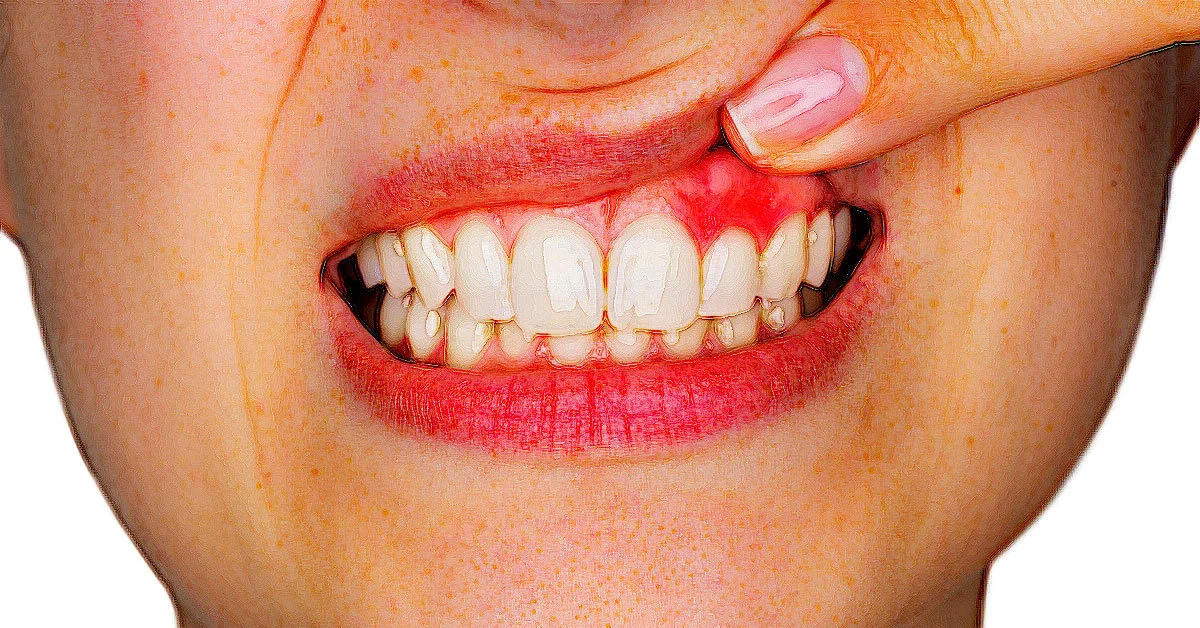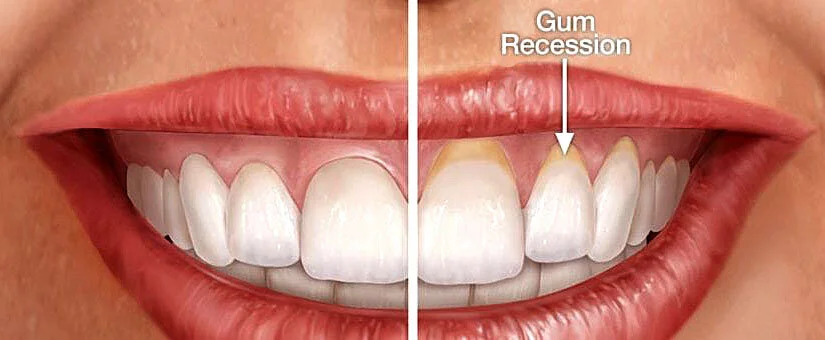Tooth Sensitivity and Gum Disease
Can you spot the common thread shared by these two seemingly different problems?
Tooth sensitivity can be caused by all sorts of things—including cold!
In the past, we have written two informative blogs regarding gum disease and tooth sensitivity. To better understand these two seemingly unrelated issues, let’s look at the correlation between these two problems and look at how you can fix them.
First, let’s look at Gum Disease and the wide variety of health factors it can be related to.
GUMS: “Life Preservers” for Your Teeth
Just below the gumline, the roots of your teeth are relatively unprotected aside from your gums. Holding each tooth firmly in place, your gums surround the area to help further protect the roots of your teeth. Because of this, the soft tissue we know as our gums work as the life preservers of your teeth.
Unfortunately, if we don’t floss and take care of the spaces between our teeth, harmful bacteria can build up and cause serious problems. As it thickens, plaque on your teeth can easily turn into plaque in your arteries. When our tissue is inflamed, blood vessels open and allow bacteria into the blood stream where it can spread throughout the body.
This bacterium, known as atherosclerosis, is a plaque made up of fat, cholesterol, calcium and other substances found in blood. It is also a main characteristic of coronary artery disease.
A closer look at inflamed gums
Chronic cases of inflammation—including gum inflammation from periodontal disease—is one of the key contributing factors for a variety of health problems. In fact, those who suffer from gum disease and inflammation are 2-3x more likely to experience events such as stroke, heart attack, or other serious cardiovascular incidents.
In our Gum Disease and the Heart blog from May of 2019, we briefly outlined the signs and symptoms of periodontal disease. While the disease itself is often painless, the most important way to catch it early is by seeing your dentist regularly. Things to look for that often signal the onset of gum disease are:
Swollen or red gums
Gums that bleed easily when brushing or flossing
Pus between the teeth and gums
Bad breath
Buildup of hard brown deposits along the gum line
Loose teeth or teeth that are moving apart
Receding gum tissue or teeth that appear longer
Reducing your risk of gum disease may require a little extra attention but may potentially add years to your life. Some things that you can do, are quitting smoking, managing diabetes, having regular dental visits, brushing and flossing, eating a balanced diet, controlling your blood pressure, and implementing exercise.
ENAMEL: The Superhero of Our Teeth
Aside from our gums, the main protector—or ‘superhero’ of our teeth—is the enamel. This invisible material is harder (although much more brittle) than steel and keeps sensitive nerves safe from elements like cold and hot substances. Despite its strength and heroic efforts to prevent harm from coming to our teeth, enamel cannot be brought back once it has been damaged or altogether stripped. This material needs to be taken care of, otherwise we risk exposing the parts of our teeth that desperately need its protection.
Previously outlined in our Sensitive Teeth blog from April 2018, one of the things that can cause tooth sensitivity is brushing too hard. By being too aggressive when brushing and/or using a medium or hard bristled brush, we can strip away the enamel which exposes nerve endings and leads to tooth pain.
A tool that can help prevent this from happening are soft-bristled electronic toothbrushes. Including a pressure sensor that alarms you when you are pressing too hard, options like Oral B or Sonicare are great brushes for protecting enamel.
Another common cause of sensitivity is from tooth whitening. While these procedures are not inherently harmful, whitening is not for everyone. If you ever experience extreme sensitivity either during or directly after, stop whitening immediately and begin using a toothpaste specially made for sensitive teeth.
The difference between teeth with and without gum recession
However, the most widespread trigger for tooth sensitivity is due to gum recession. Often a symptom of the aging process, gum recession can happen to anyone. As our gum tissue recedes, the root surface of teeth are exposed without enamel to protect it.
There are a few ways you can protect enamel:
Avoid acidic foods such as soda, candy, and carbs with high-sugar content. Instead, try snacks like fiber-rich fruits and vegetables, cheese, milk, and yogurt. These options moisten your mouth and help to fight the acid and bacteria that eats away enamel.
A helpful tip: if you do eat something acidic, don’t rush to brush! Try to wait for about an hour so your teeth can strengthen themselves.
Relax your jaw. Over time, clenching or grinding our teeth can wear away at enamel. If you suffer from night-time grinding, talk to your dentist about being fitted for a mouthguard.
Use a soft-bristle toothbrush. As previously mentioned, using a soft-bristle brush with angled or multiple layered bristles are an excellent way to clean without harming your teeth. If you can, invest in an electric toothbrush with a pressure sensor. Powered toothbrushes often come with heads that have soft bristles as the rotation and vibration already add extra pressure without the need of firm bristles.
Look into treatment. For those suffering with tooth sensitivity, treatments like fillings, sealants, fluoride gel, or special toothpastes may be necessary. Feel free to talk to us for a good recommendation!
Always talk to your dentist about any questions you may have
Final thoughts
After learning more about gum disease and tooth sensitivity the common thread between each of these issues lies in our gums. By taking care of these important tissues, we ensure that our mouths are not only healthy, but our bodies are healthy as well.
Talk to the team at Alexandria Smiles if you have any questions or concerns! We’re here to help keep you smiling.
Learn More About Tooth Sensitivity
Continue reading about this widely popular dental complaint.
Root Canals: Not As Scary As You Think
Get to the root of the problem! Here’s why root canals are the not-so-scary procedure that will save your teeth.
The Connection Between Gum Disease and the Heart
There are many different regions of the body that can be affected by your mouth’s health. Keep reading for more information about gum disease and the heart!




